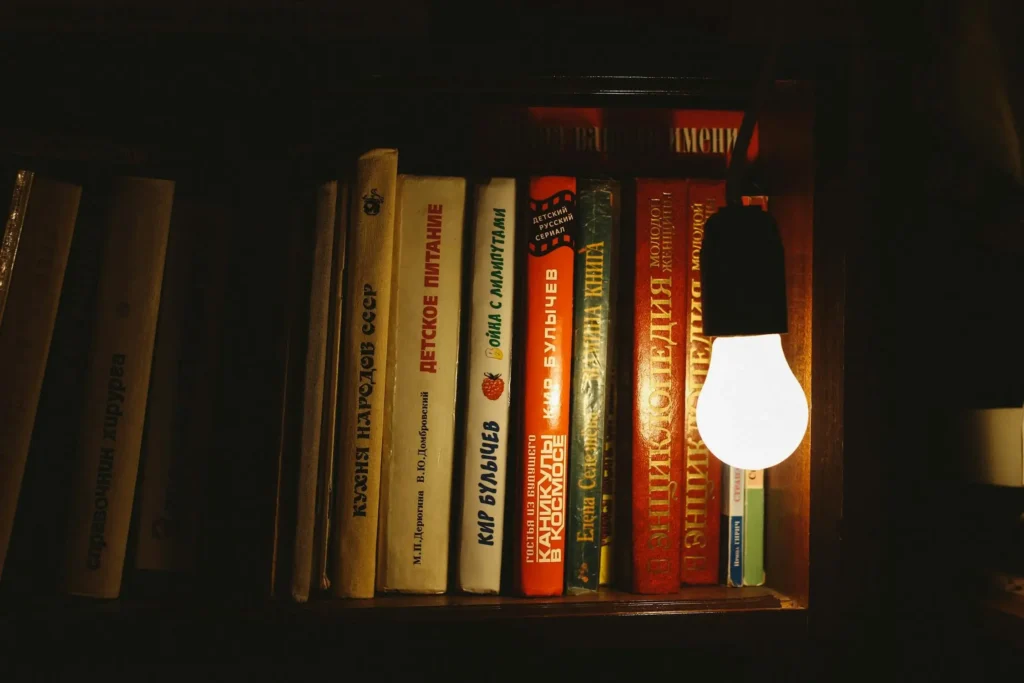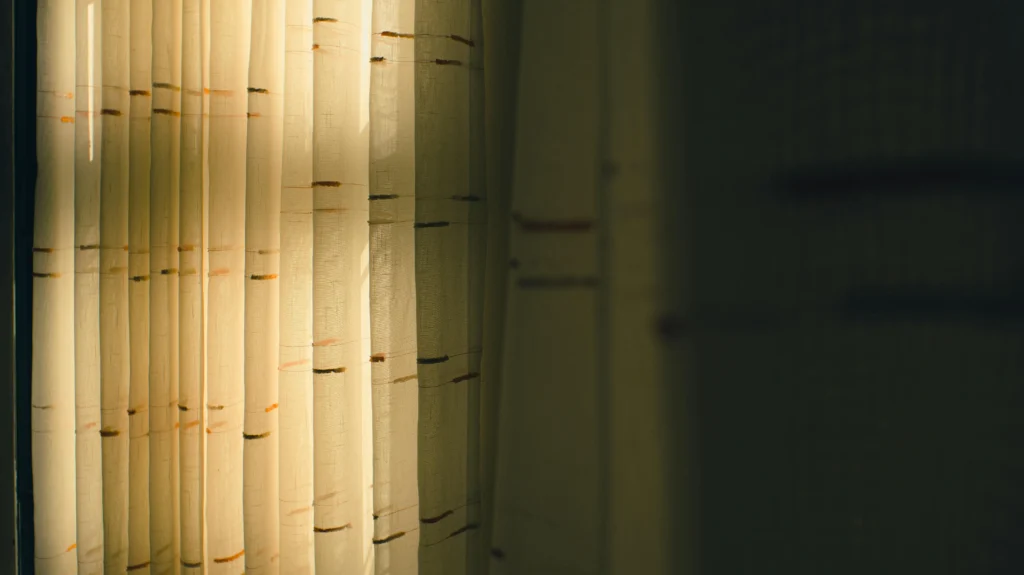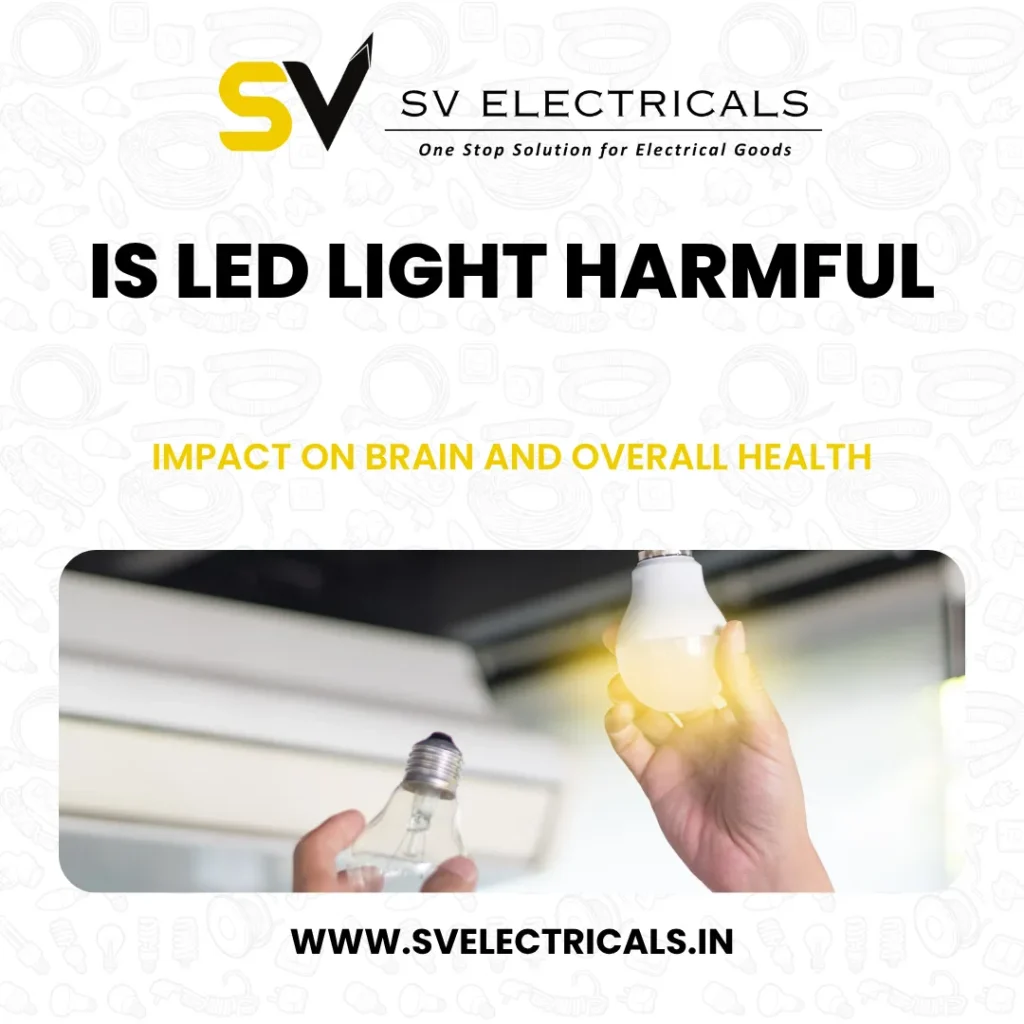LED lights have been increasingly preferred, replacing traditional options like incandescent and fluorescent bulbs. All thanks to their manifold benefits. They last 25 times longer, come in colour variants and save up to 90% energy.
But with all this newfound love for LEDs, a question pops up: Is LED light harmful for eyes?
Below, we address the common concerns and explore the science behind LED lighting.
Is LED Light Harmful For Eye?
LED lights usually are safe to use. They also offer benefits like cost saving, environment friendliness and energy saving.
While LED lights offer numerous advantages, there are some concerns about their potential impact on our eyes. The common concerns observed are related to eye strain, discomfort, and potential long-term damage. The symptoms include:
- Eye fatigue
- Blurred vision
- Dry eyes
- Headaches
However, an important point to note is that usually, these symptoms are observed on excessive exposure to screens and not because of LED lights themselves.
How Can We Protect Our Eyes From LED Light?
Now that we are aware that blue ray LED light can have few potential impacts on eyes, here are some practical tips to follow to protect your eyes against potential harm from LEDs:
- Take Breaks. You can follow the 20/20/20 rule. So, the rule applies as follows – After every 20 minutes, look away from screens for 20 seconds. Then, look at something 20 feet away.
- Dim the lights whenever possible and adjust LED lights and screen brightness to low levels.
- Wear Blu-ray or reading glasses when working on laptops. They are designed to block blue light.
- Look for LEDs with warm white colour temperatures (around 2700K). They emit less blue light.
- Drink plenty of water to keep your eyes moist and stay hydrated.
Is Blue LED Light Harmful To Health?
You might wonder why there is so much fuss about blue light. Is Blue LED Light Harmful To Health?
Blue light is a part of the visible light spectrum with a shorter wavelength. To your surprise, besides electronic devices, it is even present in sunlight. It plays a vital role in regulating our sleep-wake cycle.
Many researchers have done study on this matter and found these conclusions:
Research by the Scientific Committee on Health, Environmental and Emerging Risks (SCHEER) showed no direct connection between LED lights leading to photosensitivity of skin.
But anything in excess can be harmful. The same goes with Blu-rays. Research by the French Agency for Food, Environmental and Occupational Health and Safety (ANSES) indicates that blue light is harmful and can lead to retinal damage. However, they found that some LEDs used in evenings observed an increased impact on the circadian system. This may, perhaps, influence the sleep quality. But, at the moment, it isn’t completely clear if this disturbance can have adverse effects.on health.
Hence, prolonged exposure to Blu-ray lights, particularly in the evening, can disrupt sleep patterns. But how? It is because these radiations suppress the production of melatonin, a hormone that signals sleepiness. This can lead to difficulty falling asleep.

Is LED Light Harmful For Health?
LED light exposure is less than 10% of International agreed exposure limits (ICNIRP).
So, the research by SCHEER concluded that available scientific findings did not identify any evidence or studies on LEd Light being harmful to skin, eyes or heath as the total exposure is below the standards.
While some concerns exist about the effects of LED lights, most research focuses on prolonged exposure to high-intensity blue light. Daily use of LED lights at home or in offices is generally considered safe.
Are LED Lights Safe For Daily Use?
In moderation, LED lights are safe for daily use. However, make sure to keep your screen time minimal, use proper lighting when working, use warmer light settings and take breaks in between to avoid any risks.
What Are Some Of The Best Brands of LED Lights that Are Not Harmful?
There are a handful of LED light brands that stand out of the crowd in terms of quality and safety of heath. Here are some of the best brands of LED lighting:
- Philips
- Havels
- Crompton
- Bajaj
- Wipro
Here at SV Electricals, we understand the importance of healthy lighting. You can browse our range of some of these above mentioned top lighting brands to find the perfect lighting solutions for your home or office, ensuring a safe and comfortable environment for all. Get in touch to know more!

Do LED Lights Affect Sleep?
Usually, people sleep in a dark environment.
But, is it okay to sleep with LED lights on in your room? No, it is not recommended to sleep with LED lights on in your room, especially if they emit Blu-rays. While the overall intensity of LEDs is lower than older lights, it can still negatively impact your sleep quality.
So, the question comes as to which LED Light is Bad for Sleep?
Mostly, LEDs with cool white temperatures emit more blue ray radiation. They can impact your sleep. So, those must be avoided in bedrooms or living areas where you intend to relax before sleep.
Instead, consider using warm-tone lights (2400-2700K) in your rooms to create a cozy atmosphere. You can also explore alternative lighting sources like table lamps with warm white bulbs or bulbs curated for night sleep.
What Is The Impact Of LED Lights On Brain Health?
Are LED Lights Good for Your Brain? While more research is needed, some studies show that excessive exposure can lead to impacts on cognitive brain functions.
Want to know how LED lights Affect your Brain? Read further to know it all.
The following are the ways by which LED lights can negatively impact your brain and nervous system:
- Disrupts sleep – blue light can interfere with sleep patterns, which is crucial for cognitive function, memory, and mood regulation.
- Increased Alertness: While beneficial during the day, excessive blue light exposure at night can lead to difficulty winding down and relaxing.
- Potential for Eye Strain and Headaches: Prolonged exposure to bright lights, including LEDs, can contribute to eye strain and headaches, which can indirectly affect cognitive function.

Do LED Lights Emit Harmful UV Rays?
No, the majority of standard LED lights do not emit harmful ultraviolet (UV) rays. Only those specialized LEDs used in some medical and cosmetic applications may emit UV radiation.
For typical household and commercial LED lights, the UV emission is minimal and not considered harmful. However, prolonged exposure to UV-emitting LEDs can pose risks to skin and eye health.
Do LED Lights Emit Harmful UV Rays?
Many LED lights flicker, i.e. they switch on and off, creating a stroboscopic effect. While it is not visible to the naked human eye, it is detrimental to your health. Such flickering can cause health issues like headaches, eye strain, and even seizures in sensitive individuals.
While modern LED lights are designed to minimize flicker, it’s essential to choose high-quality products from reputable manufacturers. We at SV Electricals take pride in our top quality and innovation brands Philips, Crompton, Wipro, Ledlink and Panasonic.
Frequently Asked Questions About Is LED Light Harmful
Are LED Lights Harmful For Eyes?
Modern LED lights are designed to minimize UV emissions. But, if you have prolonged exposure then LED light is harmful. However, daily use of minimal LED lighting at home or office is not harmful.
Are LED Lights Safe For Daily Use?
Yes, LED lights are safe for daily use in the home, office or workplace. Only high exposure can be harmful.





